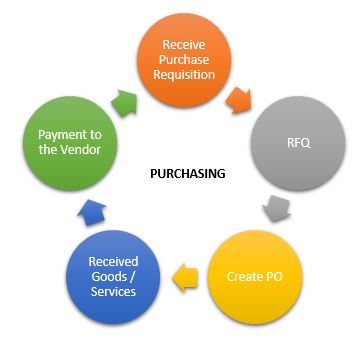Spend Analysis is the process of analyzing current, previous and forecast future
spending. It is a process of identifying, gathering, cleansing, categorizing
organization’s spending data which help to analyse an organization’s
expenditures, profits, purchase, sales, etc. Spend Analysis in Procurement is
done with goal of decreasing procurement cost, increase efficiencies of spend
management and decision making.
Spend Analysis in Procurement start by asking right questions
- Which product or services are we buying?
- How many quantities have we bought?
- How much amount have we paid?
- Are we buying from which suppliers?
- Who is buying?
- What are the contract terms? Etc.
Spend Analysis Tools
There are many advanced analytics software available for analysing spend.
There are Microsoft Excel, Microsoft Power BI, GEP SMART, SAP Ariba, etc.
Microsoft Excel: It is an excellent tool for making dynamic
dashboards which can provide analysis and deliver thoughtful insights.
Microsoft Power BI: It is a type of application software for
making powerful dashboards which use for spend analysis enables companies to
have a better understanding of their spend management.
GEP SMART: It is a full spend analysis platform, GEP SMART
cleanses, validates, classifies and reports spend data from all your source
systems to provide accurate, actionable information, with granular, item-level
visibility across the enterprise.
SAP Ariba: The SAP Ariba spend analysis solution gathers your
spend data from wherever it lives, classifies it according to company and
industry standards, and then enriches it with Dun & Bradstreet market
intelligence.
Best practices in Spend Analysis
Steps in Spend Analysis
Spend analysis typically include six key steps from spend identification to
analysis.
Framework: Spend Analysis in Procurement & Business
Spend analysis framework describes the process of collecting structured &
unstructured data and modelling it through technology component by
intelligence to create dashboard which benefit the business to analyse
business spend and improve efficiency of procurement operations. Learn the 3
steps of spend analysis framework
1. Data Asset System
It is the first step of spend analysis framework. In this process, we need to
collect the structured and unstructured data. Data assets classify in two
categories, which are:
-
Internal Data Assets: Internal data assets typically refer
to data gathered from an organization’s own IT infrastructure, such as the
enterprise resource planning (ERP) systems, but can include data provided by
suppliers & customers
-
External Data Assets: Any data that originates from outside
can be considered external data assets. This includes data publicly
available on the Internet, 3rd party proprietary assets, etc.
2. Layer System
In this process, we need to cleansing & model the data through technology
& intelligence to create dynamic dashboard & reports. This system is
combination of integration, intelligence and presentation.
- Integration Layer: Technology component & Data Models
-
Intelligence Layer: Category Analysis, Supplier Analysis, Purchase
Order Management Analysis, Segment Analysis, Payment Analysis, Data Quality
Analysis - Presentation Layer: Dashboards, Reports and Ad Hoc Reports
3. Business Benefits
It is an end result of spend analysis framework. Following output can be
benefitted to the business.









